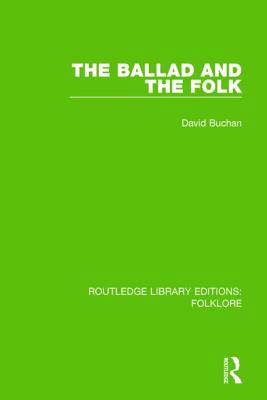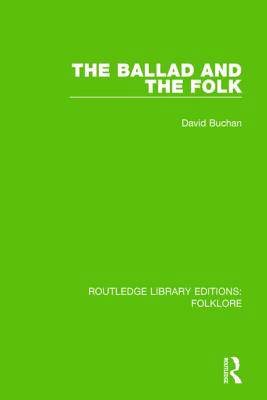
- Retrait gratuit dans votre magasin Club
- 7.000.000 titres dans notre catalogue
- Payer en toute sécurité
- Toujours un magasin près de chez vous
- Retrait gratuit dans votre magasin Club
- 7.000.0000 titres dans notre catalogue
- Payer en toute sécurité
- Toujours un magasin près de chez vous
Description
The ballad is an enduring and universal literary genre. In this book, first published in 1972, David Buchan is concerned to establish the nature of a ballad and of the people who produced it through a study of the regional tradition of the Northeast of Scotland, the most fertile ballad area in Britain. His account of this tradition has two parallel aims, one specifically literary - to investigate the ballad as oral literature - and one broadly ethnographic - to set the regional tradition in its social context. Dr Buchan applies the interesting and important work which has recently been done on oral tradition in Europe on the relationship of the ballad to society to his study of this particular part of Scotland. He examines a nonliterate society to discover what factors besides nonliteracy helped foster its ballad tradition. He analyses the processes of composition and transmission in the oral ballad, and considers the changes which removed nonliteracy, altered social patterns, and seriously affected the ballad tradition. By demonstrating how people who could neither read nor write were able to compose literature of a high order, David Buchan provides a convincing explanation of the ballad's perennial appeal and an answer to the 'ballad enigma'. His book is also a valuable study in social history of this culturally distinct region, the Northeast of Scotland.
Spécifications
Parties prenantes
- Auteur(s) :
- Editeur:
Contenu
- Nombre de pages :
- 342
- Langue:
- Anglais
- Collection :
Caractéristiques
- EAN:
- 9781138842205
- Date de parution :
- 01-02-15
- Format:
- Livre relié
- Format numérique:
- Genaaid
- Dimensions :
- 152 mm x 236 mm
- Poids :
- 612 g

Les avis
Nous publions uniquement les avis qui respectent les conditions requises. Consultez nos conditions pour les avis.






